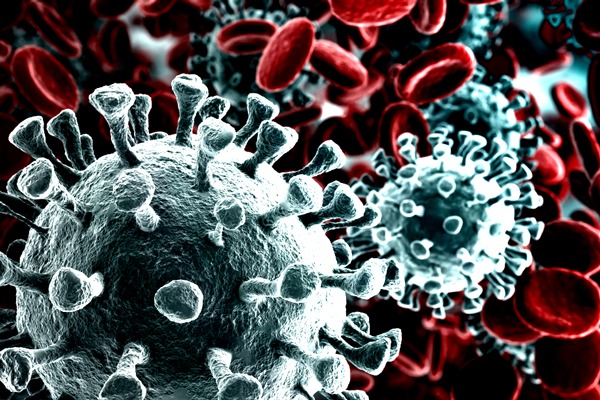
RETURNING citizens housed at the United College of Education (UCE) and the Bulawayo Polytechnic College are sharing buckets, crowded bath facilities, not observing social distancing during meals and have not been tested after being placed in quarantine on May 16, risking transmission of the coronavirus at the facilities.
BY SILAS NKALA / PATRICIA SIBANDA
Zimbabwe received thousands of returnees mostly from South Africa and Botswana who have been quarantined at the Beitbridge National Social Security Authority facility, Plumtree High School in Matabeleland South, UCE and Bulawayo Polytechnic, among other facilities around the country.
Bulawayo alone has received 2 764 returnees, mayor Solomon Mguni said last week.
Some of returnees complained that their living conditions were deplorable and could fuel the spread of coronavirus in quarantine centres.
The country has received numerous cases from the Beitbridge, Masvingo and Harare quarantine centres as cases spiked to 174.
One of the returnees held at the UCE, Sinikiwe Ncube, told Southern Eye on Friday that the issue of crowding was worrying.
“We were taken in for quarantine on May 16 and I think we are about 200 or so here. Each hostel houses 14 inmates. The challenges are the ratio of people per bathroom and toilets as 14 people use one bathroom or toilet at the same time,” she said. “Those manning the facility are not professional. They are mixing different groups of people, thereby exposing us to the risk of the infection. The worst part is that we are not being tested. We were told that one is tested on entry into the country and the tests are repeated on the eighth day, but that has not been done.”
- Chamisa under fire over US$120K donation
- Mavhunga puts DeMbare into Chibuku quarterfinals
- Pension funds bet on Cabora Bassa oilfields
- Councils defy govt fire tender directive
Keep Reading
Ncube said there was no social distancing in the dining room.
“We appeal to the government that the social workers at the centres must not be tribal as we are forced to speak one language, which some of us do not know,” she said.
“The quarantine centres are risky and as citizens, we need answers as to why we are not being tested. We were told that we were going to be quarantined 21 days … test the very day you enter, on the eighth day and 14th, but that has not happened.”
The returnees said their relatives were not allowed to drop off food and toiletries at the centres even after they went for days without.
A returnee at Bulawayo Polytechnic said: “We stayed three days without being given any toiletries; they only took action when the female inmates complained that they had not been given sanitary pads.”
Matabeleland Institute for Human Rights (MIHR) secretary-general Benedict Sibasa called on government to improve services at the centres.
“MIHR is calling on the government through various ministries to speedily develop functional complaints making and handling mechanisms in all COVID-19 quarantine facilities in the country in order to deal with citizens’ grievances as stipulated in section 68 of the Constitution of Zimbabwe,” Sibasa said.
“Our concerns are the increasing number of diaspora returnees being put in quarantine centres and the realisation that there are complaints of poor services in some centres. There is currently poor communication between government and quarantined returnees on release and testing procedures, which has led to two demonstrations at UCE in Bulawayo and Belvedere Technical Teachers’ College in Harare.”
In a report raising alarm at the spiralling infections at quarantine centres, Habakkuk Trust said: “The spiralling infections are raising worries of overspill to communities amid reports of appalling conditions and escapes from quarantine holdings … Habakkuk Trust implores the government to improve the management of quarantine centres by developing robust screening, testing and isolation measures. They should ensure that they enhance the living conditions in quarantine centres to levels that are consistent with international treaties and agreements.”
Public Service, Labour and Social Welfare permanent secretary Simon Masanga said he was not aware of the complaints.
“Go to the quarantine centres and find out from the social workers. We have not received any information concerning that as yet,” he said.
“Last time I went there, they never made any complaints of overcrowding in quarantine. These are people who are just tired of quarantine.”
In a report dated May 28, mayor Mguni said: “The city has received a total of 2 764 travellers from outside the country, of which 2 726 (98,6%) have been cleared and 38 are still being followed up. Of the 2 764 travellers, 874 (31,6%) were deportees who passed through Bulawayo Polytechnic College (422) and the United College of Education (452). Of new returnees the city is following up 162 cases that will undergo RT-PCR [reverse transcription polymerase chain reaction] testing.”
The mayor said the Health and Child Care ministry on May 27 reported three new COVID-19 cases for Bulawayo. He said the details of the new cases were yet to be shared.
“At least 1 234 specimens have been sent to the laboratory for RT-PCR testing and 1 166 (95%) processed and only 68 results were pending. The Lancet laboratory, which now collects specimens and sends them to their Harare counterpart for RT-PCR testing, has not reported any new cases in the city,” Mguni said.











